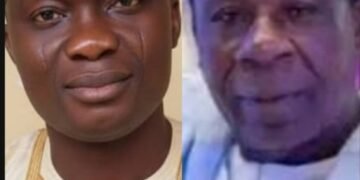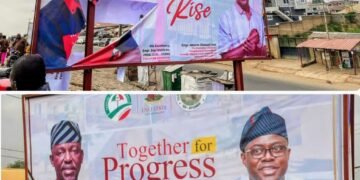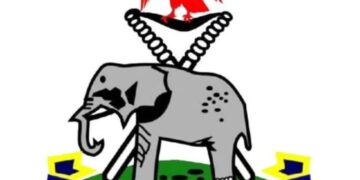The recent arrest of some Bureau De Change operators across the country especially in Lagos and Abuja by the Economic and Financial Crimes Commission, EFCC, was incidental to the Commission’s overall efforts in sanitizing the foreign exchange sector.

The Commission’s Director of Operations, Abdulkarim Chukkol stated this on Monday, November while featuring on Good Morning Nigeria, a breakfast programme on the Network Service of the Nigeria Television Authority, NTA.
Chukkol who represented the Executive Chairman, Abdulrasheed Bawa, was among eminent personalities invited to discuss the topic ‘’Sanitizing Ungoverned Operators in the Forex Sector”.
According to him, EFCC’s arrest of BDC operators and currency speculators in the parallel market was not indiscriminate but a product of intelligence. “At EFCC, we work with intelligence and with other stakeholders; and when we talk of illegal forex operators you cannot just invite people on the street even though sometimes you could, but generally you do not have a choice but to make arrest”.
He stressed that the Commission considers foreign exchange malpractice as an economic crime against the Nigerian state, adding that the Commission as far back as 2016 established a full-fledge Section known as Foreign Exchange Malpractices Section and for over ten years maintained visible “presence at all airports in the country to checkmate incidences of bulk cash movement outside Nigeria which is another aspect of this menace.”
Through the Commission’s presence at the major gateway into the country, many arrests of cash smugglers have been made and humungous sums in foreign currencies recovered.
“Some were arrested with excess of $6 Million (Six Million United States Dollars), others with $2 Million (Two Million United States Dollars) and we know that these huge sums were not meant to be used in buying goods but stolen monies being laundered out of the country,” he said
Chukkol further stated that EFCC not only recovered some of these monies, but secured their forfeiture to the federal government, while the culprits were prosecuted.
He emphasized the need for active inter-agency and stakeholder’s collaboration, pointing out that many of the over 6,000 registered BDCs do not belong to the Association of Bureau De Change Operators of Nigeria and therefore out of the orbit of regulators.
“The CBN guidelines are clear regarding returns by BDCs, but how many of them do this,” he asked.
Other discussants in the programme which includes Director of Monitoring Policy Department of Central Bank of Nigeria, CBN Dr. Hassan Mahmud, President, Association of Bureau De Change of Change Operators of Nigeria, Dr. Aminu Gwadebe, a finance and investment analyst, Niyi Akinsuji and a commentator on financial issues and Managing Director of Timeline Consult, Shuabu Idris in their respective contributions identified the issue of Nigeria being an import driven economy ,lack of adequate penalty, shortage of trained manpower, and identification of what truly constitutes ‘black market’ beyond the institutional banking system as some of the problems bedeviling the fight against foreign exchange malpractice in Nigeria.













